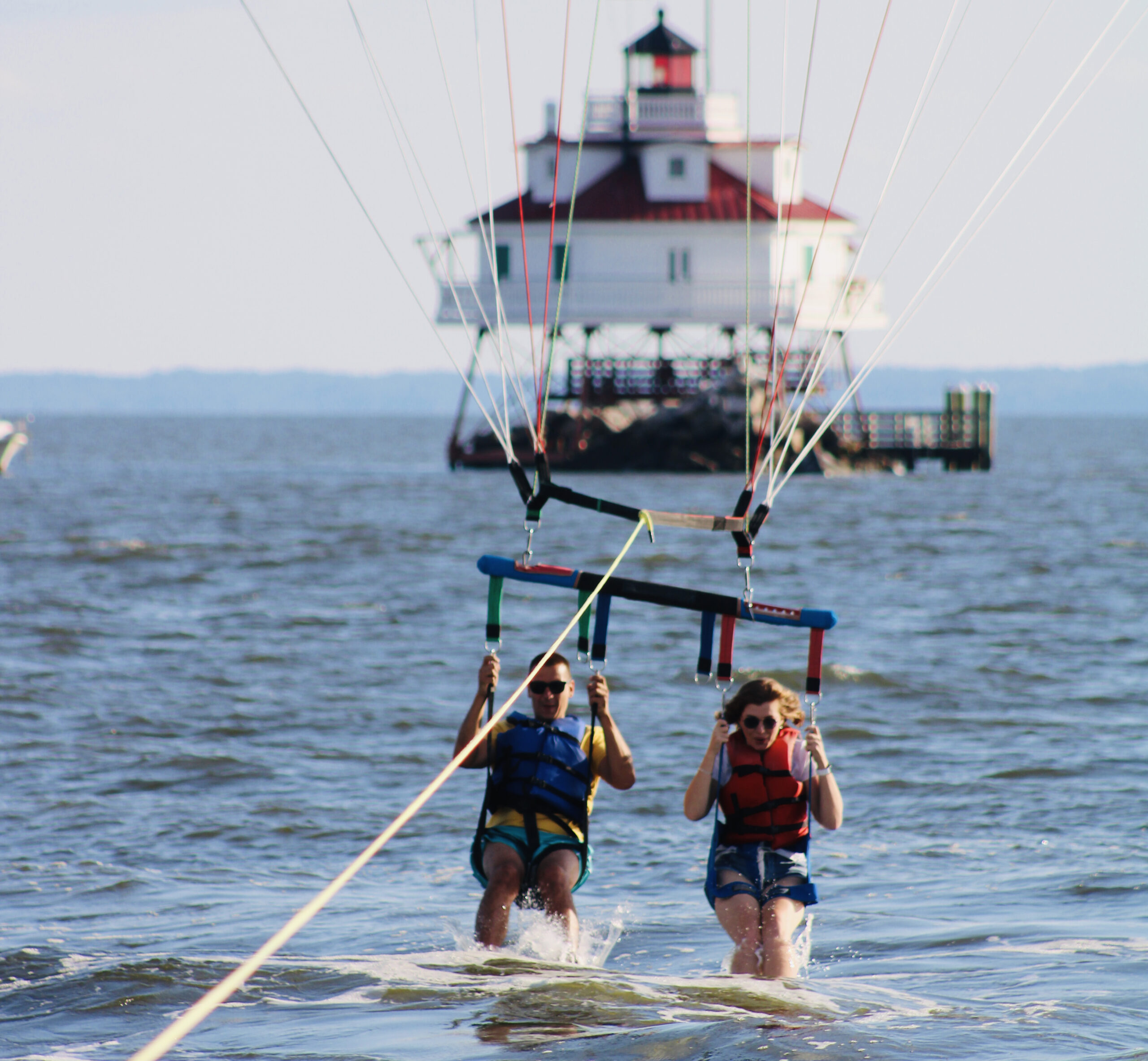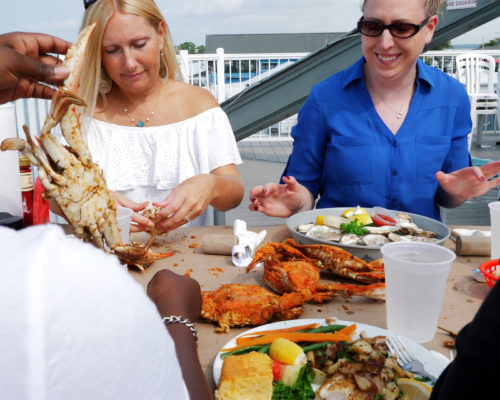Last year Mike Yowaiski’s family made the 225-mile trip to Lake Gaston, a 20,000-acre reservoir straddling the Virginia and North Carolina border to see his mother. Both Mike and his wife, Shannon, knew their 5-year-old son Connor was going to enjoy some time on the water in their 15-foot Sea-Doo Speedster, which they towed to the lake. They had rented a house with a dock, so the four-seater Sea-Doo was going to get a workout.
Mom had plans, too. Walking through a large we-sell-everything kind of store, she saw a towable tube. It brought back memories of her family’s time on the Patuxent River with, well, take a guess.
She arrived with a newly purchased towable tube and within an hour Connor was jumping wakes as he learned about this new thing called “a water toy.” And soon their niece Lydia was taking a turn at being towed. And yes, both Mike and Shannon jumped a wake or two (or ten). After all, toys are designed to be fun.
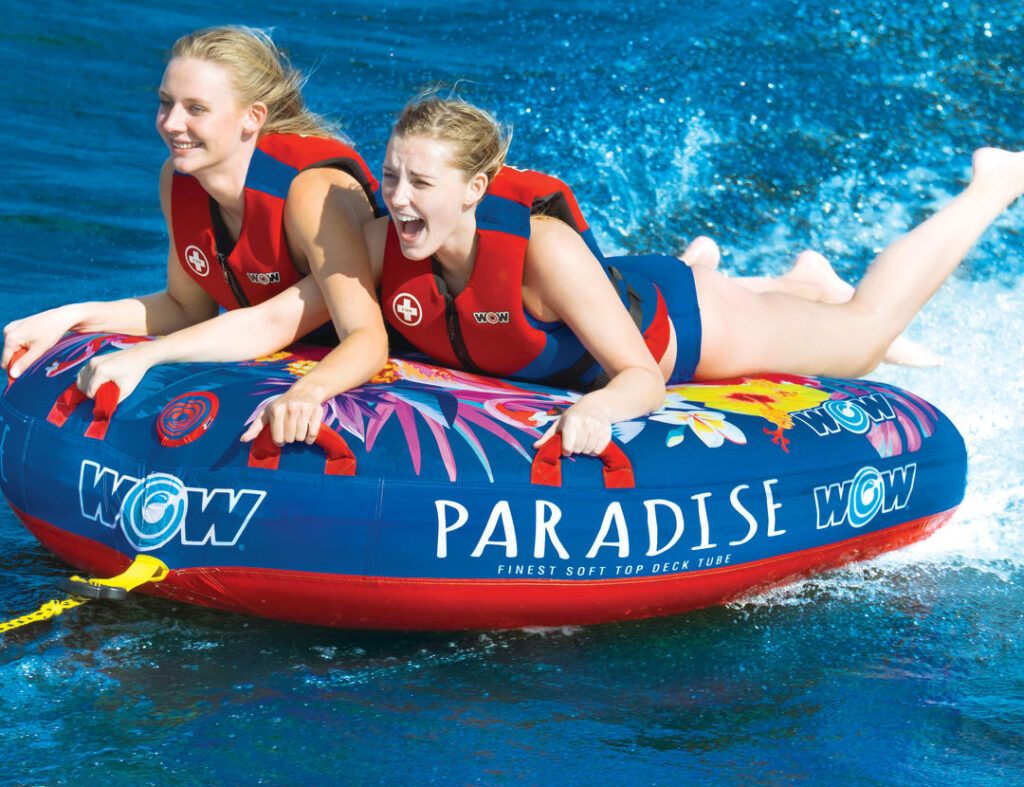
They had seen these toys on the Chesapeake while aboard their 35-foot Concept center-console but hadn’t thought much about them other than to stay out of the way. Mike is an active member of the Chesapeake Bay Power Boat Association, which had just completed a raft-up to see the Blue Angels fly over Annapolis—where destination cruises are done all the time.
But a towable raft was something new. And they’re using Mom’s tube this season on the Chesapeake.
Statistics support what the Yowaiskis saw on Lake Gaston. While not having specific numbers, Annapolis Boat Shows manager Sheila Jones says there was a definite increase in water towable sales in 2022 over previous years. Manufacturer designs have gone from a single-color board (with a tow line included) to floats shaped like a watermelon, hot dog or pizza that can seat as many as three riders. Obviously, they see the fact that if a child is attracted, so too are adults.
Watersport Lessons
When he was almost 3 years old, Daniel Stecklow was pulled holding onto a small board on the South River in Edgewater, Maryland. Soon he had a pair of training skis, and today, he’s an avid slalom skier (a single water ski for both feet instead of the standard two skis). As is the case with 5-year-old Connor and his towable tube, Stecklow fell in love with this activity, as did his sister Rachel and their friends. And as we’ve learned from Connor, it was his family that made it happen. Daniel’s father Jeff moved to the South River in 1976 where he started water-skiing at age 6.
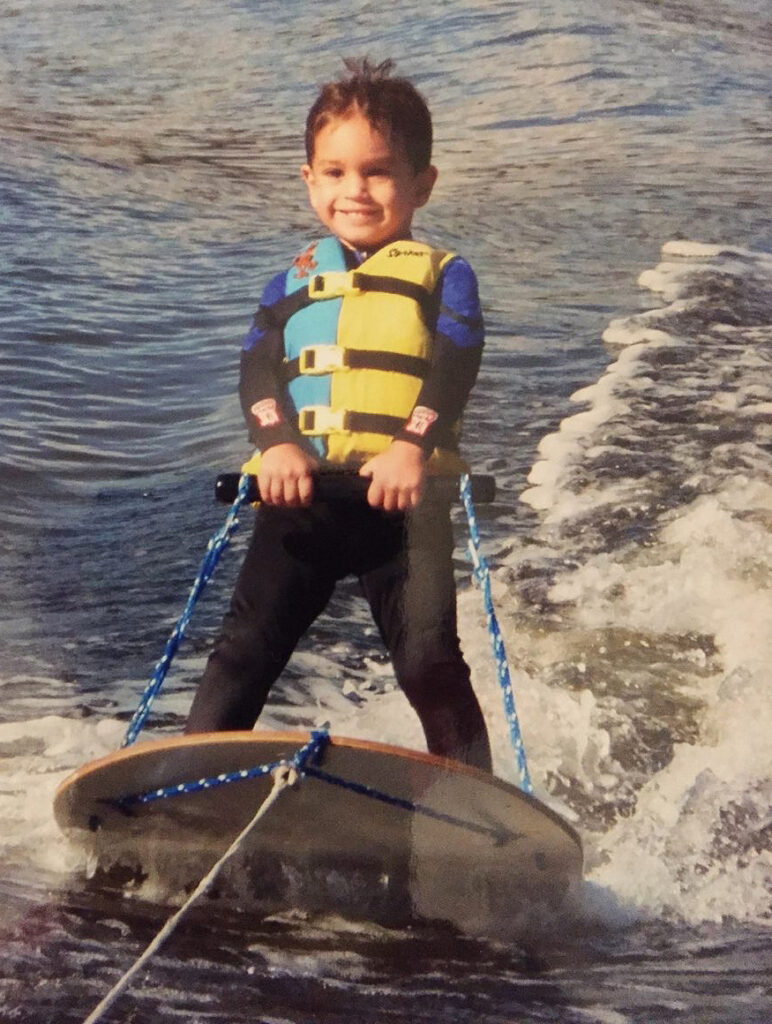
“I got experience through my dad and just fell in love with being on the water,” Jeff Stecklow recalls. “I loved the thrill of going across the water; there’s just so many things about it. Last month, it was about 60 degrees, and I was on the water, no other boats were out, and I just don’t mind it being cold. I couldn’t wait any longer to go. I just had to get out there.”
Jeff admits the fascination with water skis requires more from a user than a lot of hobbies. “A golfer can just go outside and find some open space or go to a nearby course,” he says. “I need a boat, water and other people.” He soon learned about a slalom ski course operated by the South River Ski Club that began about the time he first learned to ski. He joined in the early ’90s because it is one of three locations with a permit for slalom skiing. It’s located near where the South River meets Highway 50. The water is always smooth, and the course is never crowded.
Fellow South River water-skier Mike Wagener started the same way. “I was 5 or 6 and my neighbors on the Rhode River took me skiing for the first time. Back then, you sat on an anchored raft holding the tow rope and the powerboat pulled you off from there. I had seen others complete their skiing by dropping the tow rope and coasting back onto the raft. Well, I was a little late dropping the rope and skied right into the raft. That was my first time and I’ve been skiing ever since.” (Mike does note he avoids sliding into rafts now and just drops into the water to be picked up).
“I just love taking young kids tubing” he continued. “I remember the joy and the pleasure I got from being pulled behind a boat and now, when I get a chance, I put kids on rafts. And I talk it up. Thumb up you want to go faster, thumb down, you want to go slower. You’re going to tell me how fast to go. Once they get confident that I’m not going to hurt them, they turn into little monsters—‘We wanna go faster!’ I love the experience of putting kids behind my boat, whether it’s a kneeboard, or a tube or even an ‘airchair’ that comes out of the water about four or five feet.”
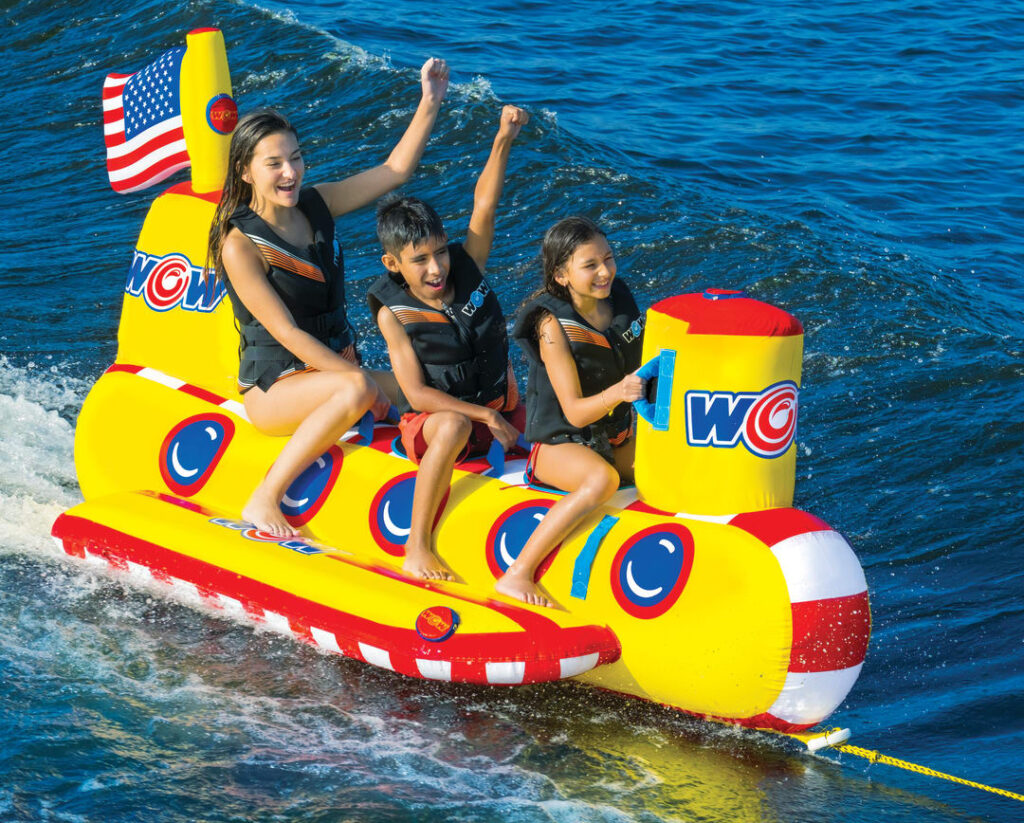
When you are looking from the shoreline of the Chesapeake Bay this summer, or watching from a boat, there’s going to be some watersports nearby. There’s a good chance you’ll hear some laughter and a “wow” or two as well. Water is one of those teachers that makes us smile.
Towing Safely
With Assistance from the BoatUS
• The person(s) being towed must wear a USCG-approved life vest intended for safety.
• Always have a spotter onboard the boat who can tell the driver if the skier has fallen, wants to speed up (thumb up) or slow down (thumb down).
• Discuss ahead of time how you intend to pick up the person you towed and give instructions on how to properly reboard.
• Turn the engine off while a skier or passenger on a towable is attempting to reboard the boat. Never use the engine or propeller as a step. Be certain the towline isn’t tangled in the prop or rudder.
• Be familiar with the water-skiing area so you can avoid areas of shallow water, submerged obstructions and other dangerous situations. Also, stay clear of beaches and swimming areas (Maryland requires staying 100 feet offshore).
• Give a wide berth to fishermen and slower moving crafts like canoes, kayaks and sailboats.
• The tow rope should not exceed 75 feet long (exceptions are made for competitive slalom skiing).
• Don’t pull a towable when it is getting dark or at night. It is hard for both the boat operator and other boaters to see the person being towed. In Maryland, you may not engage in towed sports between sunset and sunrise.
Pat Piper is a former network radio producer who has sailed and learned from the waters and the people around the Chesapeake Bay. He’s still doing it and hopes to tell more stories about the uniqueness of both.

